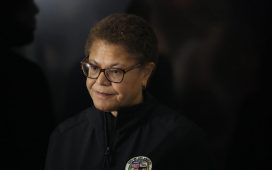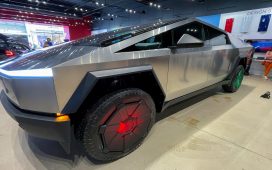Premium automakers Volvo, Jaguar and Mini have signaled their intentions to abandon the combustion engine and transform into all-electric brands.
As Mercedes-Benz and its U.S. chief Dimitris Psillakis ready to unleash a fleet of electric vehicles in the U.S. starting in the fall, the German automaker is preparing for the next stage of transformation.
“We will gradually move towards zero-emission,” Daimler CEO Ola Källenius said last week.
“I cannot put a specific date on any one moment because I simply don’t know at this stage,” Källenius said. “What I do know is that we’re allocating capital and making ourselves prepared for eventually a fully zero-emission world, which means we’re going to be one of the architects driving this transformation and not just letting it happen.”
For Mercedes’ 383 U.S. dealers, transformation is coming, too.
Dealers at many brands remain skeptical about consumer demand for EVs in the U.S. — and are concerned about the arrival of low-maintenance electrics affecting service department revenues.
But Mercedes-Benz dealers don’t need to be convinced about the demand for EVs — they need products to meet it, Psillakis told Automotive News.
“Dealers are asking for an electric product,” said Psillakis, who previously ran Mercedes’ Korea and Canada markets. “They see customers switching to electric cars of other brands.”
Psillakis and his team are working to solve that problem.
Mercedes will debut its EQ subbrand of electric vehicles in the U.S. with the launch of the EQS sedan this fall. The battery-powered S-Class features a 56-inch dashboard display, an estimated driving range of 400-plus miles and a 0-to-60-mph time of 4.1 seconds.
The product cadence picks up next year when Mercedes is expected to bring up to three battery-electric utility vehicles and an electric midsize sedan to the U.S.
“Mercedes is addressing the challenge of the times with top products — good in design, but very strong on the engineering side, on the innovations they bring and the performance they have,” Psillakis said.
The executive assured dealers that Mercedes’ foray into the EV business would not affect retailer margins.
“The margin is related to some performance criteria, which obviously will be adjusted to the electric product,” Psillakis said. “But we’re not affecting dealer profitability. We want to offer more products under the same scheme.”
Electric vehicles present not merely new technology that retailers must learn to sell and service, but they are likely to accelerate the pace of digitalization that’s now sweeping auto retail.
As consumers do more of the car-shopping process online, dealers will remain at the core of Mercedes’ retail strategy in the EV era, Psillakis said.
“We need an intuitive, simple, fast digital process,” Psillakis said. “At the same time, we need a strong network, which physically is there with the products, with the aftersale services, offering best customer experience, and closing the deals.”
Automotive News Europe contributed to this report.








